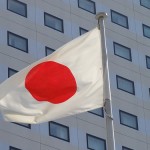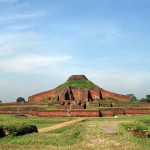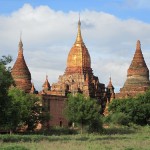The Japanese are a resilient and disciplined people. They are as observant of their heritage and ancient traditions as they are experts in things electronic and digital. No other people in Asia seem to be as bent as the Japanese in doing things right, in executing them perfectly, and in performing them according to their age-old traditions. Their (ultra-efficient) public transport system (which Philippines and Indonesia can only dream of), the origami and the tea ceremony (not to leave out hara-kiri) speak of their obsession to be faultless in everything they do. Their holidays do not necessarily reflect these cultural attributes, but they are an excellent introduction to understand the Japanese way of looking at the world.
Below is the Japan public holiday schedule 2014.
New Year’s Day – Wednesday, 1 January 2014
The Japanese celebrate the New Year period for several days, with businesses and normal life resuming on the 4th or 5th.
Coming of Age Day – Monday, 13 January 2014
Japan celebrates the transition of their young to adulthood and honor everyone who turns 20 this year. In an obvious digression from ancient rituals based on Shinto traditions, the Japanese transition to adulthood is now celebrated in amusement parks or in informal parties. (The most recent Coming of Age Day saw tremendous turnout in Disneyland with cellphone-toting and kimono-wearing adults.)
National Foundation Day – Tuesday, 11 February 2014
This day marks the founding of Japan as a nation and is celebrated with flag-raising ceremonies followed by a speech from the Prime Minister.
Vernal Equinox Day – Thursday, 20 March 2014
Historically, the Japanese Imperial family honored and worshipped their forebears on this day. Today, Japanese families take advantage of the 7-day celebrations – three days before, the day of, and three days after – associated with the spring equinox to visit and clean the tombs of their ancestors. Offering food and burning of incense are performed in the burial grounds on this day.
Showa Day – Tuesday, 29 April 2014
The Showa (Emperor Hirohito) era spanned more than six decades, starting in 1926 and ended on the death of the emperor in 1989. This day commemorates his birthday and encourages the people to reflect on his reign, which among things, propelled Japan to be an industrial leader in Asia and an economy the world has to reckon with.
Constitution Memorial Day – Saturday, 3 May 2014 (Part of the Golden Week)
On this day in 1947, the constitution of Japan took effect. The Diet (parliament) building is opened to the public on this day.
Greenery Day – Sunday, 4 May 2014 (Part of the Golden Week)
Also known as Nature Appreciation Day, this day features intricately adorned floats, paper lanterns and exquisite fireworks. Families also venture outdoors to plant trees and engage in activities that demonstrate their appreciation for nature. The national costume, kimono, is worn on this day.
Children’s Day – Monday, 5 May 2014 (Part of the Golden Week)
A celebration of the Japanese children (particularly boys), Children’s Day features carp-shaped kites and warrior dolls displays. Parents do this in the hopes of ensuring their son’s future health and success.
Greenery Day (Observed as a compensatory holiday) – Tuesday, 6 May 2014 (Part of the Golden Week)
Marine Day – Monday, 21 July 2014
Marine issues are at the forefront of a country highly dependent on the bounty (and whims) of the seas. This day also commemorates the return of Emperor Meiji from his maritime journeys. This day is marked with the Japanese moving en masse to the beaches to take advantage of summer.
Respect-for-the-Aged Day – Monday, 15 September 2014
Okinawa in Japan is known as a “blue zone” because of its long list of centenarian residents. This day is marked with various media programs and activities focusing on the elderly. Young children on this day are encouraged to make arts and crafts to present to their grandparents.
Autumnal Equinox Day – Tuesday, 23 September 2014
This is the fall equivalent of the Vernal Equinox Day. As in spring, families flock to the graveyards to clean the tombs of their ancestors and offer them food, flowers and incense.
Health-Sports Day – Monday, 13 October 2014
Inspired by the celebration of 1964 Olympics in Tokyo, the Japanese government instituted this day to encourage everyone to participate in sports. On this day, school children get together in athletic meets, and communities take part in all forms of activities that revolve around sports and physical exercise.
Culture Day – Monday, 3 November 2014
This day highlights the importance of valuing the Japanese culture. On this day, the Imperial Palace is the center of the activities where an awards ceremony takes place. An Order of Culture Awards is presented by the Emperor to those who have advanced the fields of science, art or culture.
Labor Thanksgiving Day – Sunday, 23 November 2014
While the rest of the world celebrates Labor Day on May, Japan chose to honor the contributions of its workers to the social and economic advancement of the country on this day.
Labor Thanksgiving Day (Observed as a compensatory holiday) – Monday, 24 November 2014
The Emperor’s Birthday – Tuesday, 23 December 2014
The current emperor, Akihito, was born on this day. To celebrate his natal day, the royal family opens the Imperial Palace to the public, a twice-a-year occurrence, the other being January 2. The Japanese waves the national flag to greet the emperor who appears at the palace balcony. He and the empress then personally greet everyone as they enter and leave the Imperial complex.
New Year’s Eve – Wednesday, 31 December 2014
For banks and government offices, this is the start of the New Year period, but the rest has followed and hold their last day of work on December 30 to resume on January 4.
Japanese laws have been modified to make way for the creation of “Happy Monday” system wherein holidays, where applicable, are moved to Monday to create a long week-end.
It is also important to note that while Obon (an ancient tradition that focuses on ancestor worship) is not a public holiday, state offices and most businesses are closed on the three days that these festivities occur. Most of Japan celebrates this day from August 13 to 15 while the rest of the country (Tokyo and surrounds) holds the festivities on the same dates in July.
Explore the rest of the world
More from my site
Article by Chris
Chris had a passion to contribute to society especially to fellow travelers like himself. He also had a passion for Southeast Asia and frequently visited. While brainstorming ideas, he decided that a travel blog dedicated to his favorite countries, Thailand and Singapore, could be more beneficial than any guidebook. Only one year later did the blog’s success bring in more writers, more countries, and more readers.
- Google+ |
- More Posts (327)
Help others get the information they need by liking or sharing our page!
Follow @followloveblab



